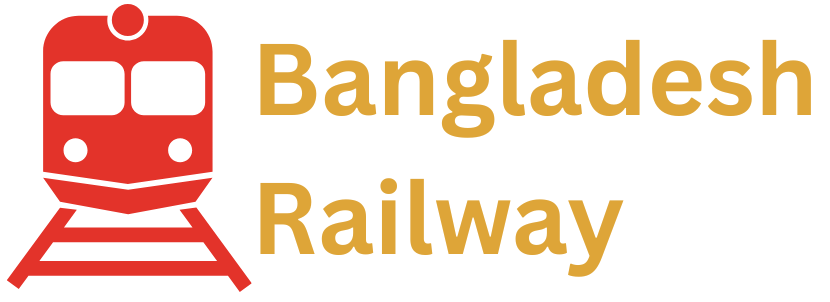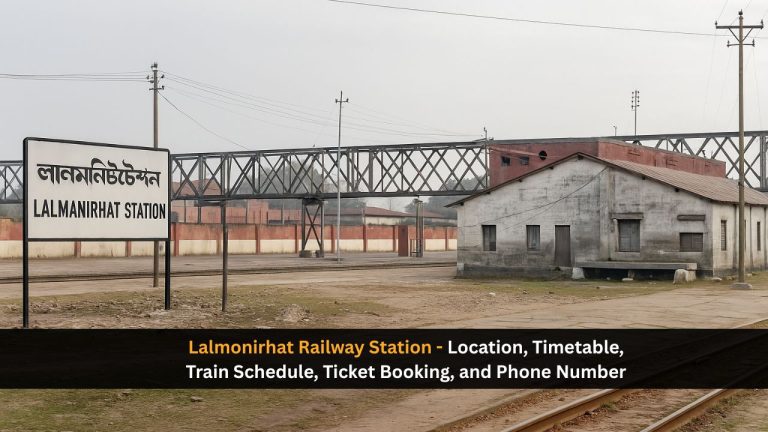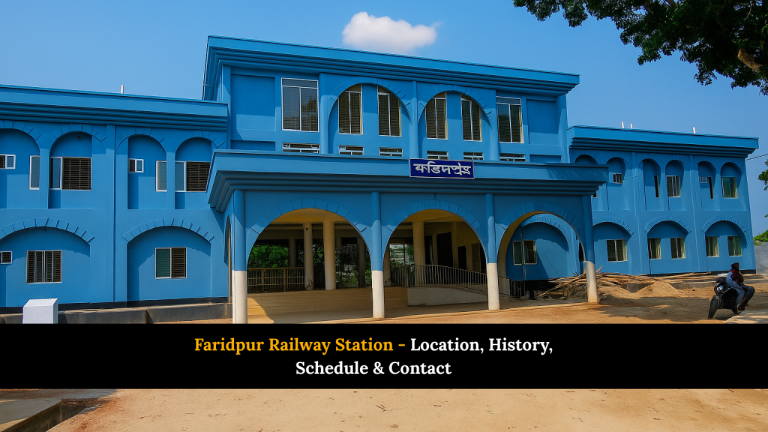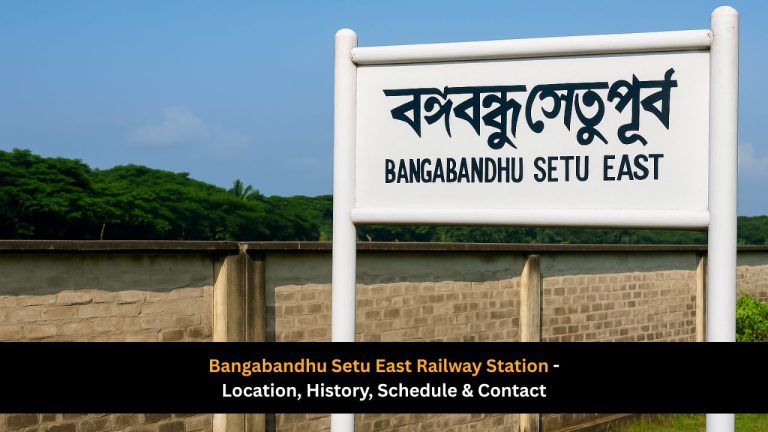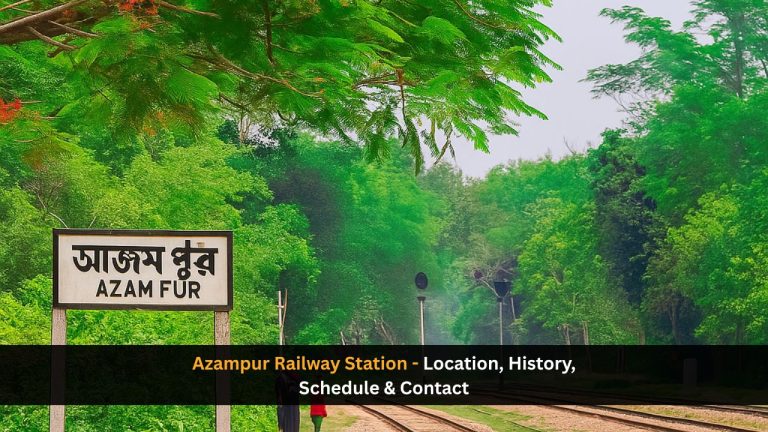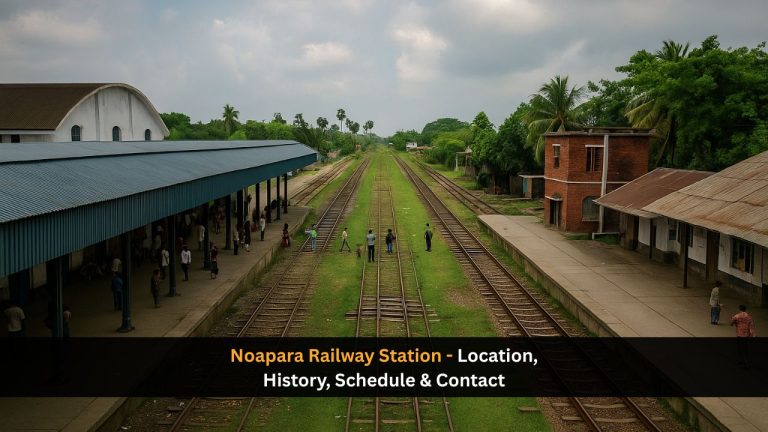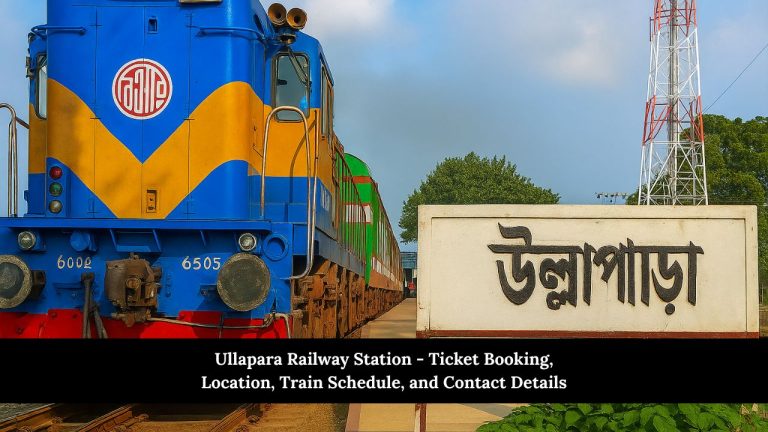Parbatipur Railway Station – Train Schedule, Ticket Booking and Contact Detail

Parbatipur Railway Station is in Parbatipur Upazila, Dinajpur District, Rangpur Division, Bangladesh. As one of the oldest and most significant railway junctions in the country, it connects several major routes across northern and southern Bangladesh. With its strategic location and historical importance, Parbatipur Junction plays a vital role in the nation’s rail transport system.
History of Parbatipur Railway Station
During the British period, rail connections to Assam and North Bengal passed through eastern Bengal. From 1878, travel from Kolkata to Siliguri involved two stages: 185 km from Kolkata Station (later Sealdah) to Damukdia Ghat via the Eastern Bengal State Railway, followed by a ferry crossing over the Padma River.
Then, passengers traveled 336 km from Saraghat to Siliguri via the North Bengal Railway. The 1.8 km Hardinge Bridge, opened in 1912, replaced the ferry. In 1926, its northern section was converted to broad gauge, making the entire Kolkata–Siliguri route broad gauge. After partition, Parbatipur remained a key junction.
Parbatipur Railway Station Location
- MW38+69 Parbatipur Upazila
- MW38+37J, Parbatipur Upazila
Parbatipur Railway Station Timetable
Parbatipur Railway Station remains open 24 hours a day, providing continuous service for passengers. Trains arrive and depart throughout the day and night, and essential facilities like ticket counters and waiting areas are also available round the clock.
Parbatipur Railway Station Contact Number
The contact number for Parbatipur Railway Station is +8801580395646. Passengers can use this number to inquire about train schedules and ticket bookings for smooth travel planning.
Parbatipur Railway Station Train Schedule
How to Book Train Tickets for Parbatipur Railway Station
To book train tickets for Parbatipur Railway Station, follow these steps:
- Visit the official website: Go to eticket.railway.gov.bd.
- Search trains: Enter “Parbatipur” as your departure or arrival station.
- Select travel date and class: Choose your preferred travel date and class for the journey.
- Select your train and seat: Choose from available trains and seats.
- Make payment: Pay securely online using your preferred method.
- Receive e-ticket: Download or print your ticket to show when boarding.
Note: Alternatively, you can visit the ticket counter at Parbatipur Railway Station to book tickets in person.
Facilities at Parbatipur Railway Station
- Platforms: The station features multiple platforms, accommodating various train services.
- Ticketing Services: Both computerized reservation systems and manual ticket counters are available for booking and inquiries.
- Waiting Areas: Separate waiting rooms are provided for male and female passengers.
- Food Stalls: Several food stalls offer refreshments and snacks to travelers.
- Restrooms: Clean and accessible restrooms are maintained for passenger use.
- Parking: Parking facilities are available for private vehicles.
- Accessibility: The station is designed to be accessible to all passengers, including those with disabilities.
- Connectivity: Parbatipur Junction is well-connected to various destinations, facilitating both passenger and freight services.
Nearby Tourist Attractions from Parbatipur Railway Station
- Parbatipur Shaheed Minar: 5 km, Language Movement monument
- Dinajpur Rajbari: 25 km, historic palace
- Kichak Fort: 10 km, ancient fort
- Chalan Beel: 30 km, large wetland for birdwatching
- Brahmaputra River: 25 km, scenic river views
- Shopnopuri Amusement Park: 20 km, family rides
- Chini Mosjid: 15 km, historic mosque in Saidpur
- Baitul Mukarram Jame Masjid: 14 km, mosque in Saidpur
- Central Locomotive Factory (KELOKA): Near station, industrial heritage spot
FAQs About Parbatipur Railway Station
Conclusion
Parbatipur Railway Station remains a vital transport hub in northern Bangladesh, blending historical significance with modern utility. Its strategic location, continuous operations, and connectivity make it essential for regional travel, commerce, and future railway development across the country.
